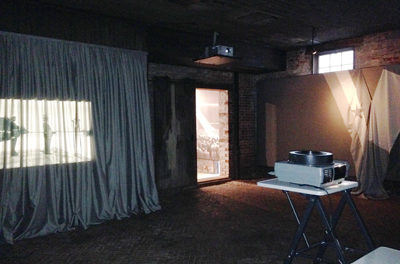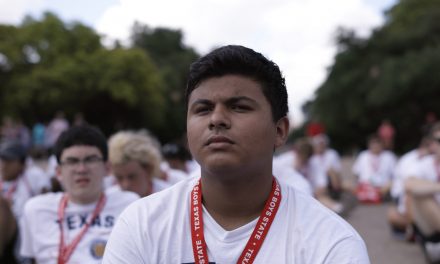Michael Wolff’s expose of President Donald J. Trump, “Fire and Fury,” inspired a surprising cinematic comparison: Trump’s campaign and his transition into presidency reads more like a comedy of dysfunctional people. Rather than Trump’s presidency being comparable to “House of Cards,” “Game of Thrones” or some other political drama, Wolff, in discussing Trump’s secret desire to lose the campaign and spin the experience into media coverage and brand-building, compares the campaign to Mel Gibson’s “The Producers.” But even that may be generous.
Instead, we have a secret fifth season of “Arrested Development,” revolving around President George Oscar “Gob” Bluth, only played by a man much older than Will Arnett, and one who is far less comfortable playing a fool.
Wolff’s actual storyline is quite simple. Trump, who wanted to leverage a failed political run into further celebrity status, is shocked and dismayed that he has actually won. He then attempts to recreate himself in the image of a successful politician. But being a Washington outsider, he does so with the mind (and political connections) of a business celebrity rather than as a politician who knows how things in Washington work. He has no real political positions of his own, does not want to (or cannot) read briefs and barely pays attention to actual political functioning. His cabinet is poorly organized, and when it comes to trying to have a message or political role, he is split between alt-right former White House Chief Strategist Steve Bannon, former party-line White House Chief of Staff Reince Priebus, and the vaguely liberal social climbers and senior adviser, respectively, Jared Kushner and Ivanka Trump (“Jarvanka”). Those three parties do not get along, and Trump, who just wants to be liked, is caught between them.
[Editor’s note: Wolff’s account includes several factual errors, according to coverage by The Washington Post and The New York Times.]
The “Fire and Fury” image of Trump is clearly not the one that many of his detractors hold of him. The idea of someone who didn’t want to win is fairly reasonable when you look back on his campaign, in which he mused that he could shoot someone in public and not lose support, sold a bunch of funny hats and had more talking points than policy positions. Ironically, his deepest supporters were right: Trump is a new and different breed of politician, setting himself apart from 2016 Democratic presidential candidate Hillary Clinton — Clinton, after all, wanted to be president.
Wolff succeeds at describing, and in many cases, explaining, the overall seemingly contradictory nature of the Trump campaign and cabinet. Wolff’s picture of Trump is that of a sexist whose closest business confidantes are all women — they’re “simply more loyal and trustworthy than men,” Trump seems to believe. He is supported by neo-Nazis chanting “Jews will not replace us,” despite the fact that Ivanka Trump, for better or for worse, is the first Jewish person in the White House, converting for marriage without much opinion from Trump. His strange, almost progressive outbursts of politics are noted amongst Republican and far right influencers — “Why can’t we just have Medicare for all,” he muses during a meeting where he is barely paying attention to Priebus’ Obamacare repeal efforts.
Perhaps the book’s most notable trait is the scant attention it pays to the social politics outside the White House. There is no discussion of the massive January 2017 Women’s March, with its 5 million protesters. The two discussions of the White House’s impact on more prescient local politics involve Bannon and Priebus at the Conservative Political Action Conference (CPAC), and Richard Spencer’s attempt to co-opt the presidency for alt-right and white nationalist principles (Spencer is a figure who, while notably not associated with anyone in the cabinet, is quietly appreciated by Steve Bannon at the shock of both Priebus and Jarvanka).
The so-called “Trump #Resistance” is not, for Wolff, worth mentioning. Linda Sarsour is not worth mentioning. Muslim-Americans’ reactions to one of the first versions of the executive order banning travel from six Muslim-majority countries (attributed almost solely to Bannon and a few legal writers, with almost no involvement from Trump himself), is not worth mentioning. The ever-increasing left-wing vitriol towards Trump, which had been there since the beginning of the Republican primary, is not worth detailing. Instead, all opposition to Trump, described more as distaste than resistance, is merely characterized as “naysayers” on cable news, which, with him watching daily, puts Trump in a bad mood.
Depending on who you ask, this might be an extremely poor oversight on the part of Wolff, or an incredibly noteworthy and insightful position to take. What is the President’s opinion on Sarsour? It is likely he doesn’t know who she is, considering he won’t read a one-page briefing. What does the president think of the effects and constitutionality of the travel ban? It was Bannon’s idea, and beyond trying to come out looking like a winner, Trump does not have a real justification for supporting it. Is he trying to destroy American democracy? No, he just wants to be liked, and the people around him have some ideas.
Wolff’s portrayal actually seems to upend some of the stronger liberal and left-wing critiques of Trump. While he himself is undeniably a misogynist (between trying to seduce his friends’ wives, calling former U.S. Attorney Sally Yates a c**t, and describing White House Communications Director Hope Hicks as “the best piece of tail” Lewandowski was ever going to get, his personal misogyny can almost be disconnected from the traditional political misogyny. If anything, the pro-life messages and traditionalist views of women’s politics are coming from Priebus. To Wolff, while Trump might be somewhat racist, he is mostly racially clueless (his relationship with Judaism is odd but not entirely abhorrent, and he wonders why someone would join the KKK, perhaps thinking the organization’s values have changed), and most racially-tinged policies came from Bannon. Discussions of Russian collusion and corruption are mostly the forte of the politically aspirant Jarvanka duo, with some help from the often forgotten older sons, Donald Jr. and Eric.
But wait. Are we supposed to pretend that Trump’s campaign wasn’t virulently and politically racist, and this was all just an aftereffect of Bannon who, with or without Trump, wanted to pursue an ideological “Trumpism”? Are we supposed to ignore the political points that Trump had been pursuing since 2012 that are, according to Wolff, fairly arbitrary?
While Wolff creates an image in which those were just phrases thrown at a wall with reckless abandon, his speeches improvised no less than his stream-of-consciousness Twitter presence, the virulency in his actual and personal racism and sexism might want to be reconsidered. Although Wolff makes no attempt to hide Trump’s sexual indiscretions, it may be irresponsible — or at least it is inaccurate — to play them off as mere character faults without consequence in the real world.
Surprisingly, the book does a fairly good job of explaining how Washington, for better or for worse, is supposed to work, despite having several incorrect details. In Washington today, success is based on who you know rather than who is talented. The majority of staffers and early-career politicians come out of beltway universities, and many people gain political clout simply because of who their parents are. Wolff’s Trump, instead of the tyrannical figure the left sees him as, or his image amongst the alt-right as a “God-Emperor,” is nothing more than a (lecherous and deeply flawed) fish out of water, as if George Costanza was cast in “Jimmy Goes to Washington.”
There may be only one lesson to take away from the book: If you put an Orthodox Jew like Jared Kushner and a virulent anti-Semite like Steve Bannon in the same position, then you get a series of escapades that, depending on media coverage, will either be extremely amusing or absolutely harrowing.




